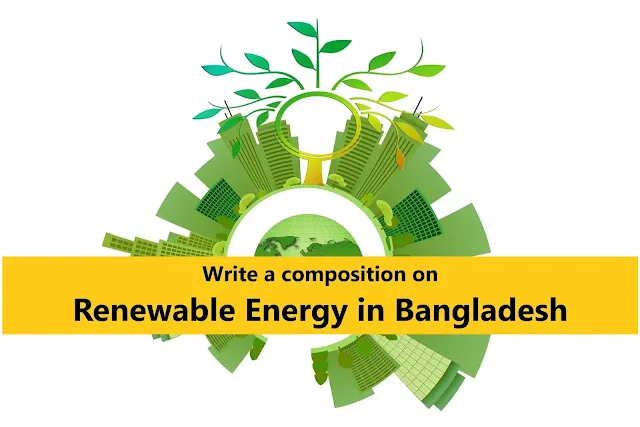Write a composition on Renewable Energy in Bangladesh
Renewable Energy in Bangladesh
Renewable energy has been gaining increasing attention in Bangladesh as the country looks for ways to meet its growing energy demand and reduce its reliance on fossil fuels. Located in South Asia, Bangladesh is a densely populated country with a population of over 160 million people. It has a rapidly growing economy and an energy demand that is expected to continue increasing in the coming years. However, the country also faces significant challenges in meeting this demand, including a limited supply of domestic fossil fuels and a lack of access to international energy markets. This has led Bangladesh to look towards renewable energy sources as a way to meet its energy needs while also addressing environmental concerns and reducing its carbon footprint.
One of the main renewable energy sources being explored in Bangladesh is solar energy. The country has a strong solar resource, with an average solar radiation of 5.5 kWh/m2/day, making it well-suited for solar energy generation. In recent years, the government has made significant investments in solar energy, including the establishment of the country's first solar park in 2015. The park, located in the central part of the country, has a capacity of 10 MW and has helped to drive the growth of solar energy in Bangladesh.
In addition to solar energy, Bangladesh is also exploring other renewable energy sources such as wind, biogas, and hydroelectricity. The country has a number of wind resources along its coast, and there have been efforts to develop wind farms in these areas. Biogas, which is produced from the decomposition of organic matter, is another promising renewable energy source for Bangladesh. The country has a large agricultural sector, and there is potential to harness biogas from livestock manure and other organic waste. Hydroelectricity, which is generated by harnessing the energy of falling water, is also being explored in Bangladesh, with a number of small hydroelectric projects already in operation.
One of the key challenges facing the growth of renewable energy in Bangladesh is the high cost of these technologies compared to fossil fuels. While the cost of renewable energy technologies has been decreasing in recent years, it is still generally more expensive to produce electricity from renewable sources than from fossil fuels. This has led the government to prioritize the development of renewable energy sources that are more cost-effective, such as solar and biogas.
Another challenge is the lack of infrastructure and technical expertise to support the growth of renewable energy in Bangladesh. The country has a limited grid system, and there are challenges in integrating renewable energy into the grid. In addition, there is a need for more trained technicians and engineers to support the development and maintenance of renewable energy projects.
Despite these challenges, the potential for renewable energy in Bangladesh is significant. The country has a strong solar resource and a growing demand for energy, and there are a number of promising renewable energy technologies that could be harnessed to meet this demand. The government has recognized the importance of renewable energy and has made significant investments in this area, including the establishment of the country's first solar park. While there are challenges to overcome, the development of renewable energy in Bangladesh has the potential to not only meet the country's energy needs but also to contribute to the global effort to combat climate change and reduce dependence on fossil fuels.





